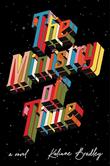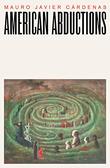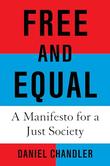
by Peter Coyote ‧ RELEASE DATE: March 19, 2024
A quietly uplifting, practical view of Buddhism.
Awards & Accolades
Our Verdict

GET IT
Coyote shares his views of modern Buddhism in the real world.
The author, a popular actor and a Buddhist priest, mentions that this work’s chapters originated as lectures given on Facebook during the Covid-19 pandemic: “I felt that the translation of Zen Buddhism into an American vernacular required the physicality of a book, with its portability, permanence and ease of bookmarking. There is something user-friendly about a book that does not require whizzing back and forth through the videotapes of lectures stored on an online channel.” In these pages, Coyote outlines the Four Noble Truths of Buddhism (Dukkha, Samudaya, Nirodha, Marga) and their meanings. He also discusses the Eightfold Path and other foundational Buddhist teachings. His concentration is on the secular Buddhism that’s most commonly practiced in the United States, grounding Buddhist thinking and practices in the context of the issues of the day, such as the murder of George Floyd and, as he puts it, “the aftermath of a violent attempt to block a legitimate election, overthrow an elected president, and place democracy’s head on the chopping block.” The author asserts that this approach is in line with the teachings of the Buddha himself, who “cautioned all who would listen against seeking childish, romanticized relief from our actual lives.” He offers no such childish relief here, instead writing very directly about human iniquities ranging from the Holocaust to the systemic racism of modern-day American law enforcement. The calm, inexorably sensible way Coyote links the deeper principles of Buddhism to secular social awareness is cumulatively convincing. He never browbeats, and he never allows even his non-Buddhist readers any easy excuses. “Once we have experienced the infinite interconnections between all parts of the Universe,” he writes, “why do we wait until people are impoverished, imprisoned, suffocated, and murdered in the streets before we intervene on their behalf?” When he writes that people don’t have to be perfect before doing what’s right, he makes readers believe it.
A quietly uplifting, practical view of Buddhism.Pub Date: March 19, 2024
ISBN: 9781644119754
Page Count: 352
Publisher: Inner Traditions
Review Posted Online: April 23, 2024
Review Program: Kirkus Indie
Share your opinion of this book
More by Peter Coyote
BOOK REVIEW
by Peter Coyote
BOOK REVIEW
by Peter Coyote
Awards & Accolades
Likes

26
Our Verdict

GET IT
New York Times Bestseller
IndieBound Bestseller

by Matthew McConaughey ‧ RELEASE DATE: Oct. 20, 2020
A conversational, pleasurable look into McConaughey’s life and thought.
Awards & Accolades
Likes

26
Our Verdict

GET IT
New York Times Bestseller
IndieBound Bestseller
All right, all right, all right: The affable, laconic actor delivers a combination of memoir and self-help book.
“This is an approach book,” writes McConaughey, adding that it contains “philosophies that can be objectively understood, and if you choose, subjectively adopted, by either changing your reality, or changing how you see it. This is a playbook, based on adventures in my life.” Some of those philosophies come in the form of apothegms: “When you can design your own weather, blow in the breeze”; “Simplify, focus, conserve to liberate.” Others come in the form of sometimes rambling stories that never take the shortest route from point A to point B, as when he recounts a dream-spurred, challenging visit to the Malian musician Ali Farka Touré, who offered a significant lesson in how disagreement can be expressed politely and without rancor. Fans of McConaughey will enjoy his memories—which line up squarely with other accounts in Melissa Maerz’s recent oral history, Alright, Alright, Alright—of his debut in Richard Linklater’s Dazed and Confused, to which he contributed not just that signature phrase, but also a kind of too-cool-for-school hipness that dissolves a bit upon realizing that he’s an older guy on the prowl for teenage girls. McConaughey’s prep to settle into the role of Wooderson involved inhabiting the mind of a dude who digs cars, rock ’n’ roll, and “chicks,” and he ran with it, reminding readers that the film originally had only three scripted scenes for his character. The lesson: “Do one thing well, then another. Once, then once more.” It’s clear that the author is a thoughtful man, even an intellectual of sorts, though without the earnestness of Ethan Hawke or James Franco. Though some of the sentiments are greeting card–ish, this book is entertaining and full of good lessons.
A conversational, pleasurable look into McConaughey’s life and thought.Pub Date: Oct. 20, 2020
ISBN: 978-0-593-13913-4
Page Count: 304
Publisher: Crown
Review Posted Online: Oct. 27, 2020
Kirkus Reviews Issue: Dec. 1, 2020
Share your opinion of this book
More by Matthew McConaughey
BOOK REVIEW
by Matthew McConaughey illustrated by Renée Kurilla

by Robert Greene ‧ RELEASE DATE: Sept. 1, 1998
If the authors are serious, this is a silly, distasteful book. If they are not, it’s a brilliant satire.
The authors have created a sort of anti-Book of Virtues in this encyclopedic compendium of the ways and means of power.
Everyone wants power and everyone is in a constant duplicitous game to gain more power at the expense of others, according to Greene, a screenwriter and former editor at Esquire (Elffers, a book packager, designed the volume, with its attractive marginalia). We live today as courtiers once did in royal courts: we must appear civil while attempting to crush all those around us. This power game can be played well or poorly, and in these 48 laws culled from the history and wisdom of the world’s greatest power players are the rules that must be followed to win. These laws boil down to being as ruthless, selfish, manipulative, and deceitful as possible. Each law, however, gets its own chapter: “Conceal Your Intentions,” “Always Say Less Than Necessary,” “Pose as a Friend, Work as a Spy,” and so on. Each chapter is conveniently broken down into sections on what happened to those who transgressed or observed the particular law, the key elements in this law, and ways to defensively reverse this law when it’s used against you. Quotations in the margins amplify the lesson being taught. While compelling in the way an auto accident might be, the book is simply nonsense. Rules often contradict each other. We are told, for instance, to “be conspicuous at all cost,” then told to “behave like others.” More seriously, Greene never really defines “power,” and he merely asserts, rather than offers evidence for, the Hobbesian world of all against all in which he insists we live. The world may be like this at times, but often it isn’t. To ask why this is so would be a far more useful project.
If the authors are serious, this is a silly, distasteful book. If they are not, it’s a brilliant satire.Pub Date: Sept. 1, 1998
ISBN: 0-670-88146-5
Page Count: 430
Publisher: Viking
Review Posted Online: May 19, 2010
Kirkus Reviews Issue: July 15, 1998
Share your opinion of this book
More About This Book
BOOK TO SCREEN
© Copyright 2024 Kirkus Media LLC. All Rights Reserved.
Hey there, book lover.
We’re glad you found a book that interests you!
We can’t wait for you to join Kirkus!
It’s free and takes less than 10 seconds!
Already have an account? Log in.
OR
Trouble signing in? Retrieve credentials.
Welcome Back!
OR
Trouble signing in? Retrieve credentials.
Don’t fret. We’ll find you.





